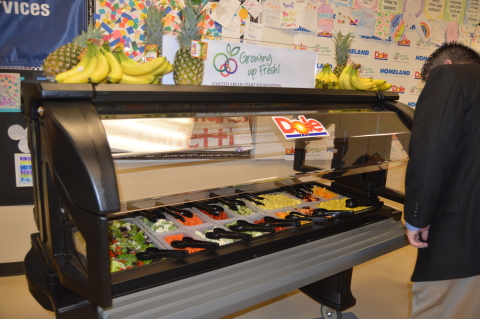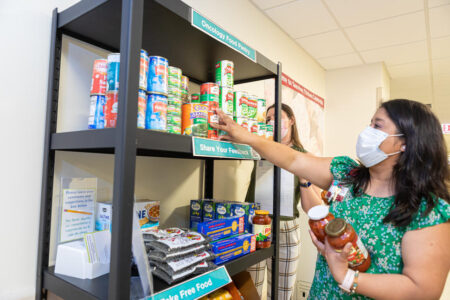
Share On Social!
In Oklahoma City, students at two local public schools are enjoying free salad bars donated by Dole Food Company and Homeland Stores as part of an initiative by the United Fresh Start Foundation to increase healthy options for students in school.
“Healthy eating options are key for a healthy lifestyle, and that’s a high priority for us when it comes to feeding our kids,” said Oklahoma City Public Schools Superintendent Aurora Lora told Business Wire. “I am very appreciative of our community partners for bringing these salad bars into our schools, supporting all the great work that our School Nutrition Services Department is doing to provide fresh, and great tasting food choices for our students.”
The schools including Hawthorne Elementary school and Classen School of Advanced Studies both received the salad bars in February of 2017 as part of the United Fresh Start Foundation, which has donated salad bars to over 5,000 schools in the last six years, working to align business and foundations to support salad bars in schools nationwide and increase consumption of fruit and vegetables for kids while in school.
“Salad bars are a visual representation of healthy school meals, and this much-needed equipment is often a ‘conversation starter’ amongst students, school administrators and parents about the importance of eating more fresh fruits and vegetables for better health,” Tom Stenzel, President and CEO, United Fresh Produce Association told Business Wire.
The program also hopes to expand the salad bars throughout the whole district later this year.
Homeland Store’s CEO Marc Jones also said in the same article, “The earlier our children are given healthy food choices, such as fresh fruits and vegetables at school lunch, the earlier they will form healthy habits and develop the strength of body and mind necessary to take on the challenges of education and leading us in the future.”
The Centers for Disease Control and Prevention has reported that schools with low socioeconomic status were far less likely (38.5%) to offer salads regularly than schools with middle (47.4%) or high (59.4%) socioeconomic status. Having an equal opportunity to more fruits and vegetables in schools may help students reduce disparities in food access and in health risks.
Latino students need healthy food environments at schools, giving them access to more fruits and vegetables, and less access to sugary drinks. To learn more about healthier school environments to ensure all kids grow up to be a healthy weight, click here.
By The Numbers
142
Percent
Expected rise in Latino cancer cases in coming years




